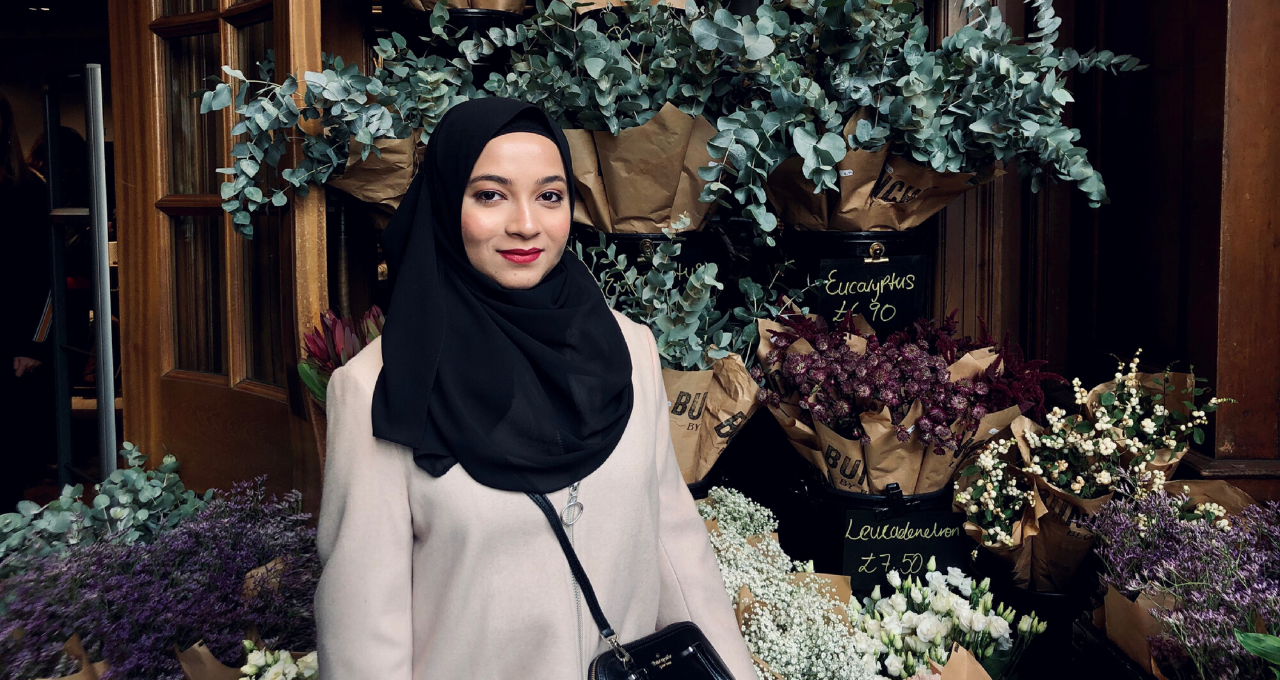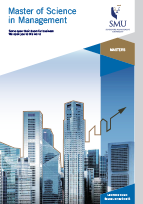
Fahima Farha was just a few months into her first job at one of the Big Four audit firms when the SMU accountancy graduate realised she was interested in organisational development — the process of helping organisations build their capacity to change and achieve greater effectiveness.
She decided not to waste any time in engineering this career shift and chose to enrol in her alma mater’s Master of Science in Management (MiM) programme. But while Fahima was already familiar with SMU’s pedagogical style (it was a critical factor that drew her back to SMU), she was pleasantly surprised to discover new challenges in her postgraduate experience.
For starters, “I had a class full of international peers, and this was something novel in my learning experience”, she says. “I had to learn to understand their different working styles to collaborate on projects. The MiM programme also had more industry speakers and case studies that reflected current, real-life scenarios.”
The real world featured in their assignments too. For instance, an SMU-X course on Digital Marketing required her to work with a real client to present a digital marketing proposal, which she appreciated. “Such exposure makes postgraduates more industry-ready,” Fahima believes.
An exchange programme at London Business School further underlined the importance of such real-world exposure for her. Surrounded by classmates who were comparatively much more senior in their career pathways, Fahima felt intimidated initially. “I was a little afraid to speak up when it came to class discussions,” she admits. “I had classmates who were partners, CEOs, and COOs. I felt like I was not experienced enough to have conversations with them or participate in class discussions. It took me a couple of days to muster the courage to speak up.”
The question that spurred her to get over her insecurities was simple: what did she have to lose? Fahima answered this question by telling herself that she would be losing out by not participating. “I wanted to speak up and ask questions bravely when I was unsure. That attitude of ‘nothing to lose’ enabled me to participate actively in class discussions, talk to the more experienced students so that I could learn more about them and connect with them. And when I did find the courage to speak, it was encouraging to see how my thoughts resonated with my classmates; it enabled me to have meaningful discussions with them.”
The same experienced classmates and meaningful discussions turned out to be the highlight of her exchange programme for Fahima. “When my classmates share their experiences in their careers and industries, it adds value to what we learn in theory,” she enthuses. “Moreover, we develop more critical thinking when people openly agree and disagree, which is not something commonly witnessed in an Asian environment. These discussions and conversations with people who have deep insights accelerate the learning process.”
The experience of living in London on her own for two months also proved to be very enriching. “Initially I was rather anxious about living abroad, away from family and friends, as it was something that I have never done before. My concerns revolved around safety and my ability to adapt to a new environment,” says Fahima. “At the same time, I was excited by the idea of living alone, meeting new friends and being exposed to a completely new place. And my actual experience far exceeded my expectations. Studying overseas gives you a sense of independence, responsibility and broadens your worldview. It forced me to step out of my comfort zone and do things that I never imagined doing.”
From dealing with landlords to witnessing massive Brexit protests, she learned quickly that adapting to local contexts was the key to survival. This is just one of the life lessons she continues to apply to her career (she recently joined SMU as an Executive with the Learning & Organisational Development Team).
Other useful lessons from her sojourn abroad: “Learning is more meaningful when you actively engage, and being independent does not always mean doing things alone. It can also mean making the right connections and building the support system you need,” she shares.
As she explores roles in organisational development, Fahima says her rigorous MiM experience has given her a strong foundation for charting this new career path. “The programme gave us wider exposure to business management while also providing a chance to specialise in a particular track, such as finance, marketing or operations. I want to be actively involved in engaging with an organisation’s talent pool, leadership and change management, and I believe the MiM programme has provided me with the breadth and flexibility that I need to pursue such roles.”
Speak to our Admissions Advisors
Lee Kong Chian School of Business
Postgraduate Admissions
Graduate Programmes Office
50 Stamford Rd, Singapore 178899
Tel: +65 6828 0882
Join us at the upcoming events
Ofukacho, 1−1 ヨドバシ梅田タワ
Osaka, Kita Ward, 〒530-0011, Japan
Kyobashi, 1 Chome−3−5 三井ガーデンホテル 1F
Chuo City, Tokyo, 〒104-0031, Japan
